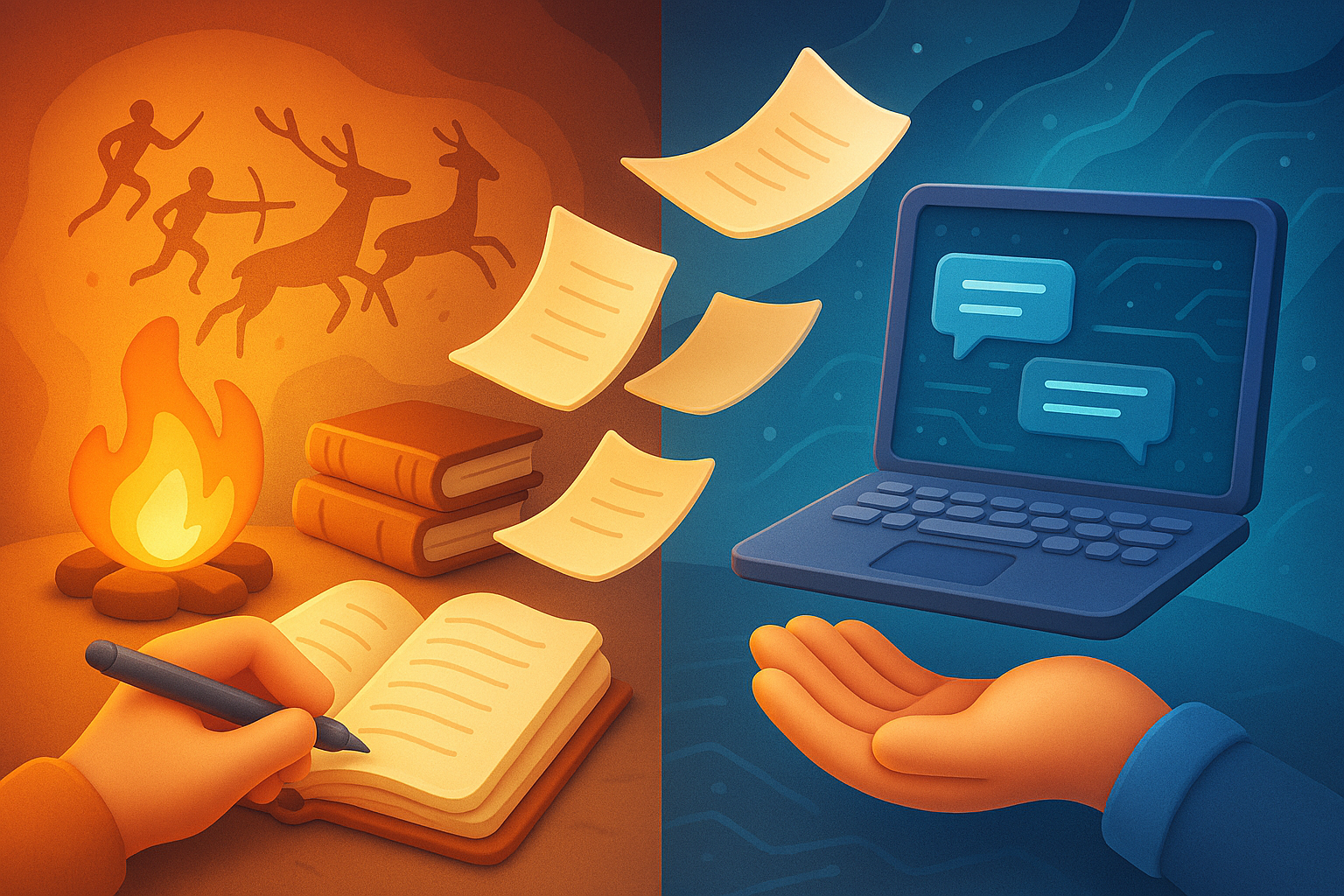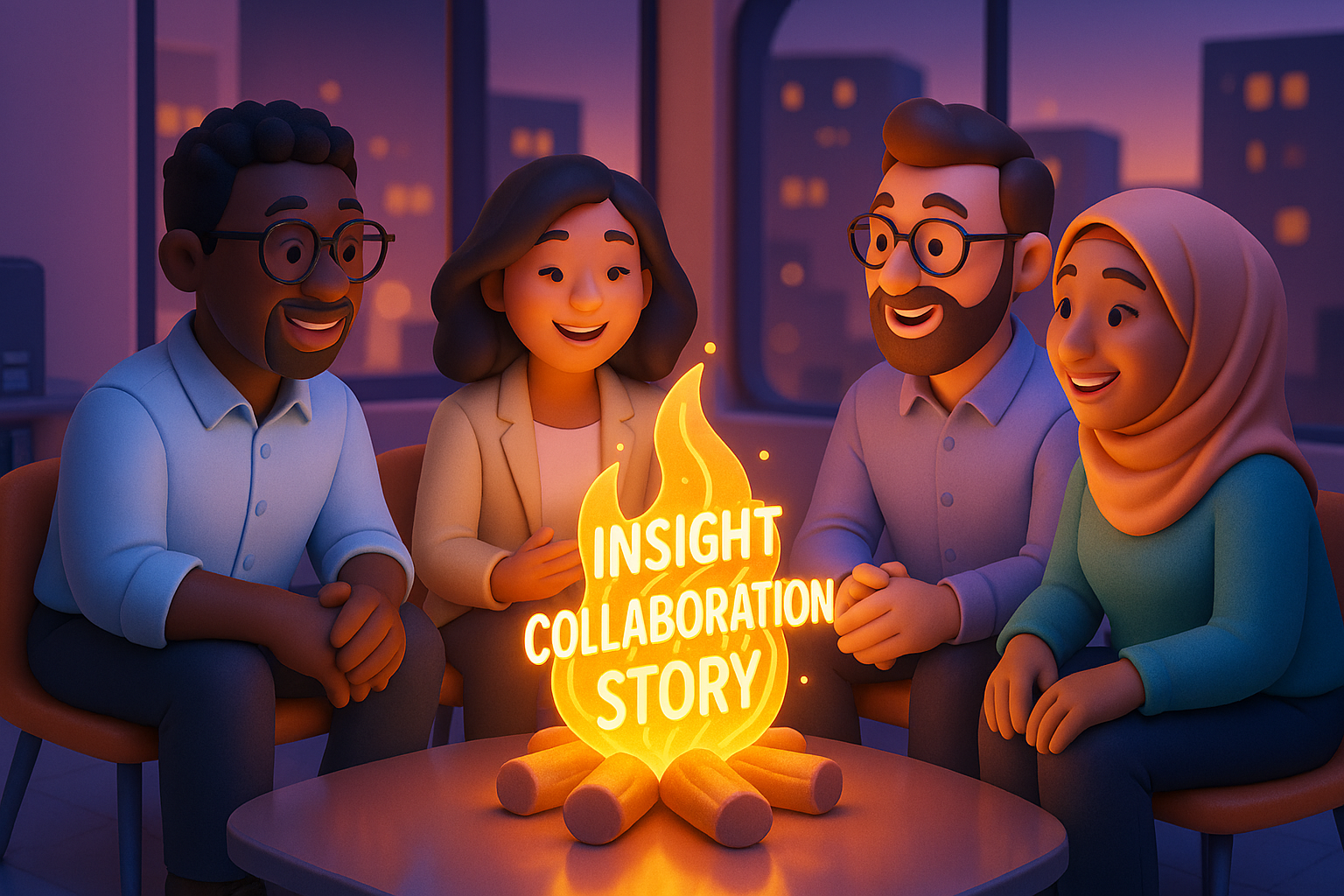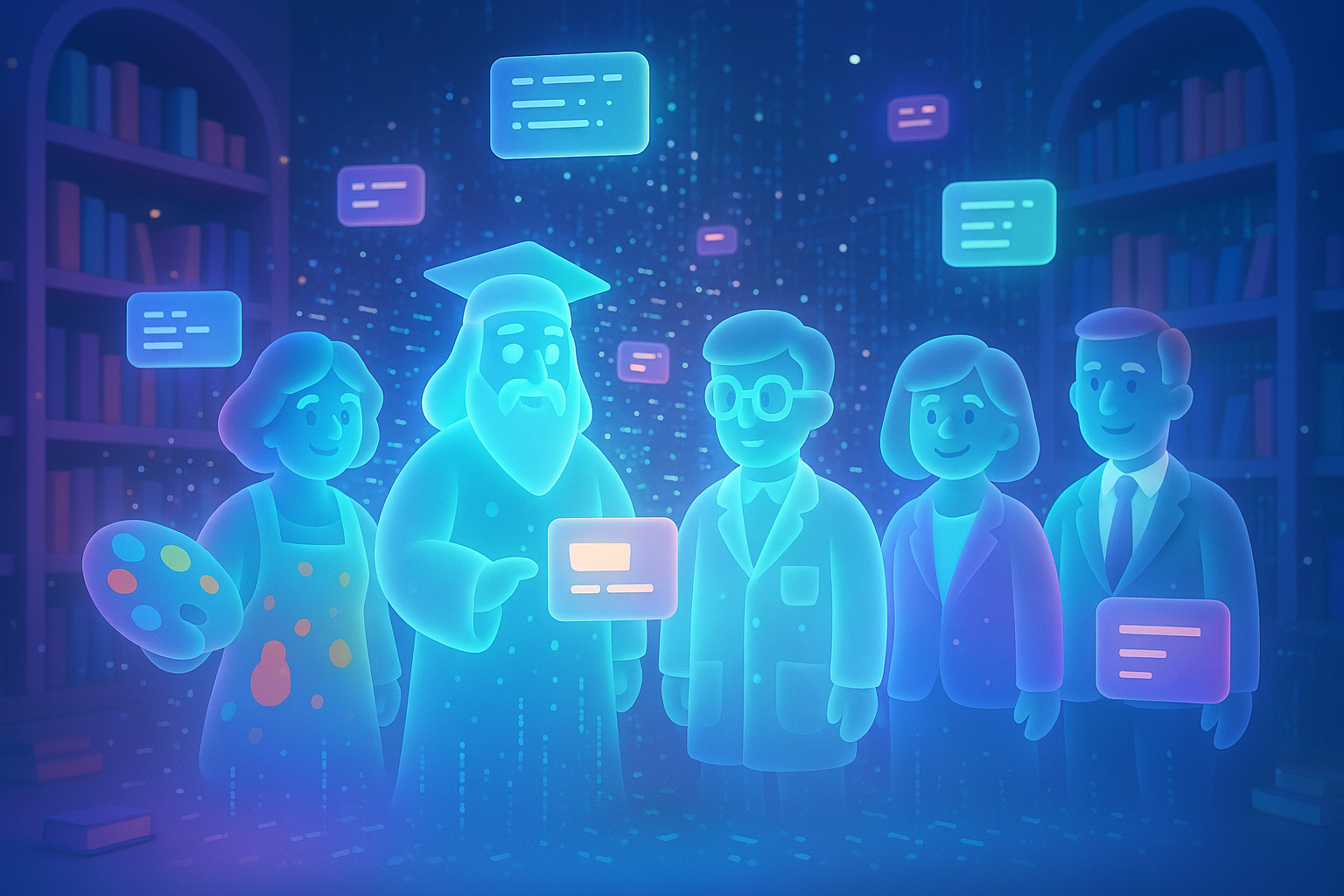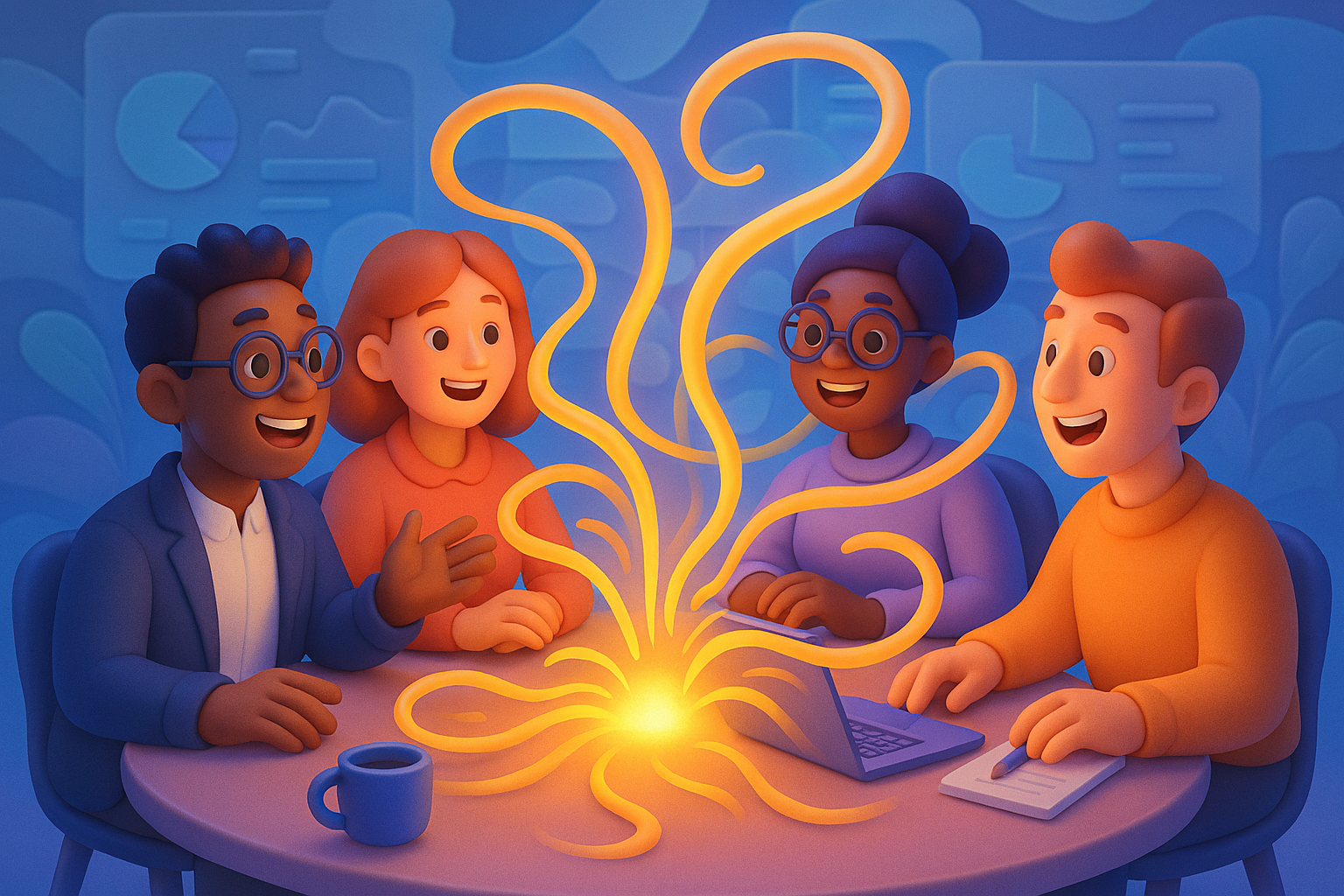· Human Element · 3 min read
Stories, Technology, and the Human Experience
Exploring how AI serves as the next chapter in humanity's storytelling journey, amplifying our narratives rather than replacing them, and how professionals can harness these tools while staying anchored in human connection and creativity.

Stories, Technology, and the Human Experience
When we talk about technological change, we often focus on features, capabilities, and efficiency. But there’s something more fundamental happening with AI that’s worth exploring together.
Really, humans have been storytellers since we gathered around fires in caves. Stories aren’t just entertainment; they’re how we make sense of our world, share knowledge, and imagine possibilities. From epic poems to family histories to case studies, we use narratives to process experience and create meaning.
What does this have to do with AI? Everything.
The tools we use have always shaped our stories. The invention of writing allowed stories to transcend time. The printing press democratized who could tell them. The internet connected narratives across the globe. Each technological shift expanded what was possible while preserving what’s fundamentally human - our need to find meaning through shared experience.
AI is the next chapter in this journey, for good and for bad. At its core, generative AI works by learning patterns in human expression and extending them in new directions. It’s a mirror reflecting our collective storytelling back to us, with variations we might not have considered.
This year, as AI meets automation and Agents ‘take over the world’ we really want to emphasize that AI is a tool, YOU are the innovator. AI doesn’t replace our storytelling - it amplifies it. It doesn’t generate meaning - we do. But it can help us explore more possibilities, connect more dots, and express insights with greater clarity. Equally, we have to exercise our own knowledge and restraint to avoid contributing to the growing tidal wave of ‘AI slop’ drowning out so many genuine stories around the world.
Over the next few months, I’d like to explore how AI can enhance your professional story. We’ll look at practical ways to use these tools while staying anchored in what matters most - human connection, creativity, and impact.
This journey isn’t about becoming “AI experts.” It’s about becoming better storytellers with new tools at our disposal. It’s about finding your place in the evolving narrative of our industry.
Try This: Take 10 minutes this week to reflect on a recent project. What story were you trying to tell through your work? Who were the key characters (clients, team members)? What challenges created tension? What resolution did you seek? Would having an AI thinking partner have changed how that story unfolded?
I’d love to hear about it here, but then do me an even bigger favor: Go be a storyteller. Share your reflection with a colleague over coffee. These conversations about our work as storytelling might reveal new perspectives on how AI can enhance your impact.
Remember, this transformation isn’t just about efficiency - it’s about unlocking potential. And the story of AI will be written by all of us, one chapter at a time.


